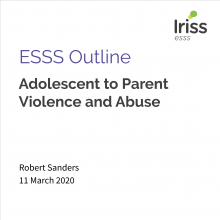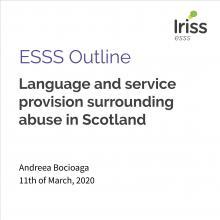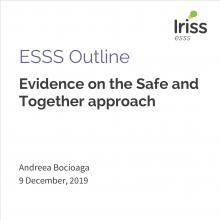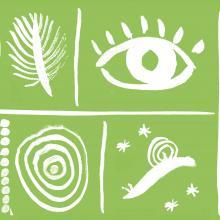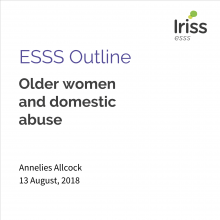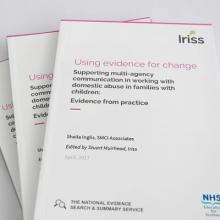Introduction
This evidence summary seeks to address the following question relating to domestic abuse: How are services currently responding to domestic abuse during COVID-19?
About the evidence presented below
The evidence presented below reflects the developing guidelines and recommendations that statutory and third sector organisations are producing with regards to domestic abuse and COVID-19.
Accessing resources
We have provided links to the materials referenced in the summary. Some materials are paywalled, which means they are published in academic journals and are only available with a subscription. Some of these are available through The Knowledge Network with an NHS Scotland OpenAthens username. The Knowledge Network offers accounts to everyone who helps provide health and social care in Scotland in conjunction with the NHS and Scottish Local Authorities, including many in the third and independent sectors. You can register here. Where resources are identified as ‘available through document delivery’, these have been provided to the original enquirer and may be requested through NHS Scotland’s fetch item service (subject to eligibility).
Where possible we identify where evidence is published open access, which means the author has chosen to publish their work in a way that makes it freely available to the public. Some are identified as author repository copies, manuscripts, or other copies, which means the author has made a version of the otherwise paywalled publication available to the public. Other referenced sources are pdfs and websites that are available publicly.
Background
Data from other countries indicates that incidents of domestic abuse have escalated during the current COVID-19 crisis (Fraser 2020). In the UK, Refuge (2020) one of the leading domestic abuse organisations, reported that calls to the UK Domestic Violence Helpline increased by 25% in the seven days following the announcement of tighter social distancing and lockdown measures by the government. During the same period, there was a 150% increase in visits to the Refuge website (Refuge,2020) . Nonetheless, some services are also reporting a drop in calls for support (BBC 2020). Service professionals argue this is because victims and survivors are now experiencing a lack of privacy and feeling like there is no support available (BBC 2020). This can have devastating consequences, as some report an increase in deaths among women and children as result of gender based violence during COVID-19 (Smith 2020; Bradbury-Jones & Isham 2020).
Due to the current social distancing regulations in place, many services have changed the way they deal with the public. Statutory and third sector services have had to minimise face-to-face interactions and are relying on digital and telephone communications for their support provision.
Safe Lives conducted a survey at the end of March on the current state of the domestic abuse sector (Safe Lives 2020a). Their findings indicate that most staff were now working remotely. Some organisations were faced with an overall reduction in services due to staff shortages and staff challenges like childcare, many were facing IT difficulties. As a result of these challenges, many domestic abuse organisations were worried about how this would affect the safety of their clients (Safe Lives 2020a). Their findings indicate that domestic abuse on one hand can be exacerbated by the stress of the current lock-down but also as a result of changes in service provision.
The following outline considers how services are responding to domestic abuse in the current COVID-19 context and explores some of the developing guidelines on service provision. The outline considers the current response to domestic abuse by statutory services, such as health and social work, as well as the response of third sector organisations.
Statutory services
Department of Health (England) (2018) Responding to domestic abuse - a resource for health professionals
This document is a general guideline published by The Department of Health (England) on how health practitioners should respond to domestic abuse. Whilst this is not specific to COVID-19, the practices and principles it encourages are crucial at this time.
The guideline indicates that health practitioners are in a key position to identify domestic abuse and to initiate support and safety for victims. This is potentially more so the case now, as contact with many other support services is being curtailed due to the lockdown (RCGP 2020).
Health practitioners are expected to respond either with a universal response or with more specialist response depending on their role and training:
- A universal response is expected from dentists, allied health professionals, ancillary staff, care assistants. These should be able to respond to disclosure with sensitivity and know how to direct people to specialist services. This is seen as a level one response. Doctors, nurses, public health nurses, midwives, social care professionals, substance misuse workers and youth workers should be able to undertake routine enquiry, assess safety risk and offer a referral to specialist domestic abuse services. This is a level two response.
- A specialist response is expected for safeguarding children (level three) by health professionals and social workers, MARAC and adult safeguarding representatives. These should be able to identify and assess risk, carry out safety planning and maintain liaison with specialist services.
- IDVAs, domestic abuse advocates or support workers, refuge staff, children’s workers and counsellors and therapists seeing people who experience domestic abuse or sexual abuse should be able to give expert advice and support to people experiencing domestic abuse (level four).
Overall, health practitioners are encouraged to provide a trauma-informed approach that builds confidence with clients and patients. They should assess the level of difficulty where patients may have a learning disability, cognitive problem or understand a different language, agreeing and carrying out the best method of communicating with them - never through friends or relatives.
This tiered response relies on individuals having contact with a range of services and it also relies on face-to-face contact and support. This is being currently challenged and disrupted as many services are unable to deliver their support. Interactions with specialist services especially have been curtailed as a result of social distancing restrictions and staff shortages (Safe Lives 2020a). It would seem much of the weight of the responses now is on universal and emergency health services like GP and A&E with limited options for specialist responses. So far, it is not clear what this means for staff training and whether medical practitioners offering universal domestic violence support would get additional training in order to deal with more specialist issues.
Royal College of General Practitioners (UK) (2020) COVID-19 and safeguarding
The Royal College of GPs has released COVID-19 specific guidelines. The guidance for GP responses acknowledges that for many vulnerable patients and families, contact with primary care may be one of the few professional contacts they have in the coming months. It also highlights that primary care is experiencing significant challenges such as staff shortages. Subtle signs of abuse and/or neglect may not be as obvious during phone/video consultations. Victims of abuse may be unable to speak freely if consulting from home.
Guidelines include key points like:
- Checking who is in the house
- Asking what support they have
- Asking closed questions - yes or no
GPs are encouraged to keep communication channels open with other key health/social care professionals who are involved in the care of vulnerable children and adults. They should continue to share information as normally for the purposes of safeguarding, including for strategy meetings, child protection and adult safeguarding enquiries, safeguarding case conferences.
GPs should also be aware of local support agencies in order to make a referral.
Independent Office for Police Conduct (UK) (n.d)
The Silent Solution is an existing police system used to filter out large numbers of accidental or hoax 999 calls. It also exists to help people unable to speak, but who genuinely need police assistance. The Silent Solution for domestic abuse is a collaboration between Women’s Aid and the National Police Chief’s Council.
It is only suitable for mobile calls.
Police advise that it is always best to speak to the operator if you can, even by whispering. Callers are also asked to cough or tap the keys on your phone in response to questions: “You will hear an automated police message, which lasts for 20 seconds and begins with ‘you are through to the police’. It will ask you to press 55 to be put through to police call management. The BT operator will remain on the line and listen. If you press 55, they will be notified and transfer the call to the police. If you don’t press 55, the call will be terminated. Pressing 55 does not allow police to track your location.”
The Silent Solution is mostly suitable for emergency situations when police intervention is needed and might not always be the first port of call for victims of domestic violence, especially during the lock-down. Moreover, the Silent Solution is not publicised equally across the whole of the UK which means many victims of domestic abuse might not be aware of this provision.
IRISi (England, Wales & Northern Ireland) (2020) Guide for general practice teams - responding to domestic abuse during telephone and video consultations
IRISi is a social enterprise established to promote and improve healthcare response to domestic violence and abuse. They have recently released their guidance for healthcare response to COVID-19. This guidance aims to inform safe telephone and video consultations with patients who are known to be at risk of DVA, when health practitioners suspect DVA and in response to self-disclosures of DVA.
They recommend a four tier approach:
- Ask
- Risk assess
- Refer or signpost
- Record
Ask - IRISi advise that all staff in telephone or video contact with patients have an understanding of the effect of domestic abuse on their patient population and the current risks during the COVID-19 pandemic. Clinicians should check whether a patient’s medical record includes a Safeguarding/DVA code before conducting a telephone or video consultation.
- They should ensure the safety of patient - ask yes or no questions
- They should ensure perpetrator is not in the room
- They should always advise calling 999 if there is any immediate danger. If the patient is unable to do this, offer to do this instead.
- They should validate the patient’s experience with phrases like ‘I believe you’ or ‘This is not your fault’
Risk assess - if there are also children in the home, health practitioners should make an immediate safeguarding referral.
Referral/signpost
- Practitioners should consider whether a safeguarding referral is needed
- They should debrief with colleagues
- They should refer patients to your IRIS Advocate Educator
Record
- Practitioners are reminded to document all enquiries, disclosures and referrals on the patient’s record. They should code any disclosure under the Read code 14XD (history of domestic abuse) and hide the consultation from online access.
- They should document any concerns they have, even if the patient does not disclose domestic abuse.
BASW (UK) (2020a) Domestic abuse and child welfare: a practice guide for social workers - domestic abuse during COVID-19
BASW (UK wide) recently released their guide for social workers which they updated with considerations for COVID-19:
“Communications and connections with people have changed quickly, and we must be more creative than ever about how we fulfil our responsibilities. However, our values and our ethics remain the same, and we can still draw on our knowledge, skills, experience and relationships, and these will stand us in good stead. Human rights are still pivotal to our beliefs and practice. We must consider the potential impact, both short and long term and do all we can to coordinate support during this time and to ensure women and children know how to access it.”
BASW advises social workers to continue to listen and validate strengths and take the time to work out what is going on. Social workers should continue to look beyond individual instances and towards patterns of behaviour. They should be aware of how wider socio-economic factors like ethnicity, disability, immigration status and sexuality are impacting situations of domestic abuse.
Social workers must have the Personal Protective Equipment (PPE) they need to maintain contact with vulnerable women, children and young people.
BASW have also produced a wealth of resources for social workers during COVID-19 (2020c). These include guidelines for home visits, working in hospitals, end of life. They also signpost to guidelines for social workers safety (PHE 2020).
Housing services
Housing associations are another key service for identifying domestic abuse during this time. Domestic Abuse Housing Alliance (DAHA) (UK) (2020) has produced a comprehensive guideline to help housing associations identify and provide safe responses to domestic abuse.
Standing Together (UK) (2020a) have also released a “Domestic abuse and sexual violence guidance for homelessness settings”. This is aimed at professionals working in homelessness services and it covers topics like establishing regular contact, approaching the subject of domestic abuse with clients, and available services to signpost for support.
Multi-agency response
Service response to domestic abuse often involves multi-agency working, especially in cases of child protection. Agencies need to work together to gain a picture of the life of a person living with domestic abuse. Multi-agency working, however, might be facing further challenges during COVID-19. This is because multi-disciplinary teams are often comprised of staff from different organisations and rely on effective partnership working. Each organisation has different priorities and differences may be particularly exposed at this time such as different perceptions of risk and access to PPE. They might also use different digital technologies which would add further challenges for frontline staff.
BASW (UK) (2020b) Professional practice guidance for social work in multi-disciplinary and multi-agency contexts during Covid-19 pandemic
BASW (2020) have published their guidelines for multi-agency working during the pandemic. They highlight the need for (among others):
- Communicating clearly roles and responsibilities
- Being prepared for changing roles
- Allowing time for debrief and reflection and processing stress
They urge agencies to redesign working practices alongside casework approaches and encourage the use of ‘key worker’ or ‘lead professional’ systems in complex or high risk situations if these do not already exist.
Standing Together (UK) (2020b) Standing Together Against Domestic Violence (STADV) MARAC Plan in response to COVID-19
Standing Together against Domestic Violence have published a detailed plan for how to proceed with their MARAC (Multi Agency Risk Assessment Conference) process. They establish that a meeting is needed to address the following challenges:
- To obtain clarification from all agencies about how they intend to engage clients over this period, particularly DA services, and refuges.
- To ensure any pathway changes are clear and disseminated to front line workers.
- To brace all agencies for an increase in DA & ask for all to share their agency’s plans on how they are going to manage any increase.
- To address some of the technological challenges and establish how information is going to be safely saved and secured with increased home working to ensure GDPR compliance (encryption, password etc).
SCIE (England) (2020) Domestic violence and abuse: safeguarding during the COVID-19 crisis
SCIE have also outlined a guide for multi-agency working in domestic abuse. Similarly to Standing Together, they indicate that:
- Agencies need to share their plans to manage an expected increase in domestic abuse.
- Each agency should clarify how they intend to engage with families over this period.
- Although frontline staff may be working remotely, it is important that they regularly share information and engage with families and victims in creative ways, safely and securely.
- Multi-agency forums should be led by online protocols and agree a joint approach to determine which virtual platforms are appropriate.
- Chairs of multi-agency forums should be skilled in managing virtual meetings. SafeLives (n.d) recommends using the case structure and sending it to all agency representatives beforehand.
- If virtual meetings become a challenge, agencies could consider report submission being discussed within a smaller group of key professionals, but this should only be used as a last resort and non-attendees should provide the same level of commitment and creative solution.
Safe Lives (UK) (2020b) Responding to the challenges of COVID-19: guidance for multi-agency forums (including Maracs)
Safe Lives has produced COVID-19 resources tailored to specific groups - survivors, family and friends and perpetrators. In their guidelines for multi-agency working they highlight:
- The need to establish clear governance over the multi-agency process
- The need to move to virtual spaces, to find suitable digital platforms and to test the suitability of these platforms
- That each organisation should have clear plans for addressing staffing changes and challenges
- The need for skilled meeting Chairs who are adept in virtual environments
- The importance of data protection
- The need to review risk for clients in the context of a COVID-19
- The importance of creative and adaptable Safety Planning with clients.
Third sector organisations
Many third sector organisations working with victims and survivors are concentrating on supporting their clients digitally. Many have extended their online messaging service and use live messaging to connect with victims and survivors.
Women’s Aid (UK and Scotland) (2020)
Women’s Aid has made provisions for all of its Direct Services support workers to work from home. Those workers have all of the equipment and access to systems that they need to continue to deliver support to women experiencing domestic abuse. They do not anticipate any break in service.
Women’s Aid argue that, for some women, accessing support online can be a safer or preferred option than calling for support if they are not able to leave the household, as the perpetrator could overhear them on the phone. As a result, they are continuing to support survivors directly through online services: Live Chat, the Survivors Handbook, emails and the Survivors Forum.
Scottish Women’s Aid (2020) have produced a page of resources for different audiences like women experiencing domestic abuse, practitioners and staff. For women experiencing domestic abuse they advise and reassure victims that support is still available online.
Respect (UK) (2020a)
Respect is a pioneering UK domestic abuse organisation leading the development of safe, effective work with perpetrators, male victims and young people using violence in their close relationships. Respect surveyed services that work with perpetrators. They found that many of these services are supporting individuals digitally, either one-to-one or in small groups. Services are dealing with an increase in demand and in two instances, services who had furloughed staff are absorbing the cost of bringing the practitioners back into service to meet the increased need and pressure on the service.
Cyrenians DASAP (Aberdeen) (2020)
Cyrenian DASAP have advised services users that:
- Women’s Group and Music Group continues to be suspended until further notice
- Staff will work with their current caseloads to ensure continued safety and wellbeing, providing support by telephone.
- Service users will be contacted by staff each day to ensure that we identify any issues with social isolation and provide appropriate support
- We will continue to monitor and log developments in service users’ physical and emotional health, and offer support where needed
- Any service users self-isolating will be offered remote care.
- Anyone needing access to food, baby items, sanitary or hygiene products will be referred to AC2U for supply deliveries where appropriate.
The AC2U service is Cyrenians joint emergency response to support the most vulnerable people in the community during the COVID-19 pandemic. The emergency service helps those who are self-isolating, who have no-one else to support them, prioritising those who are homeless, at risk of homelessness or who have multiple complex needs.
Rape crisis (Scotland) (2020)
In response to #COVID19 Rape Crisis Scotland have available helplines phone support, as well as email and text. They stress that they want to make it as easy as possible for anyone affected by sexual violence to get in touch.
Shakti (Scotland) (2020)
Currently due to Coronavirus Shakti have stopped face to face support. They are still supporting women, children and young people through telephone, WhatsApp and Facetime.
Surviving Economic Abuse (2020)
Surviving Economic Abuse (SEA) is collating and sharing information on what support is available to safeguard economic well-being. They are working with partners to develop our understanding over time and commit to regularly updating the information we are sharing.
SEA does not provide direct support or advice to victims. They advise members of the public to contact the National Domestic Violence Helpline on or the Men’s Advice Line.
Social media campaigns (UK)
Many third sector organisations are using a range of digital tools to promote awareness of the services and of domestic abuse.
Respect have launched a social media campaign to discourage abuse (Respect 2020b).
Safe Lives (2020c) has started a social media campaign “ReachIn” to encourage the community and friends and family to reach out to vulnerable individuals who might be at risk of domestic abuse.
Other services:
Amina Women’s Aid (Scotland) (2020) are only providing telephone and helpline support.
CHAYN (online) (2020) also provides a range of online resources and tools.
North West Glasgow Recovery has also produced a list of local support during COVID 19 for Violence Against Women in Glasgow (2020).
Conclusion
The evidence above highlights that the domestic abuse service sector has responded with extended guidelines for practitioners. This is reassuring. Many of the guidelines are being updated in real-time which shows that the sector is responsive and adaptable. The evidence also highlights that primary healthcare like GPs are currently a crucial point of contact for supporting victims of domestic abuse. Moreover, much of the sector - both statutory and non-statutory services, is facing similar challenges in terms of remote working, digital technologies, inter-agency working and staff shortages.
References
Amina Women’s Aid (Scotland) (2020) https://mwrc.org.uk/coronavirus-covid-19-service-update/
BASW (2020a) Domestic Abuse and Child Welfare: A Practice Guide for Social Workers - Domestic abuse during COVID-19 https://www.basw.co.uk/media/news/2020/apr/domestic-abuse-and-child-welfare-practice-guide-social-workers
BASW (2020b) Professional practice guidance for Social Work in Multi-Disciplinary and Multi-Agency Contexts during Covid-19 Pandemic https://www.basw.co.uk/social-work-multi-disciplinary-and-multi-agency-contexts-during-covid-19
BASW (2020c) Social work resources during coronavirus https://www.basw.co.uk/coronavirus-updates/social-work-resources-during-coronavirus
BBC(2020) Coronavirus: 'Worrying' drop in calls for domestic violence support https://www.bbc.co.uk/news/uk-england-tees-52119770
Bradbury-Jones C, Isham L (2020) The pandemic paradox: The consequences of COVID-19 on domestic violence, Editoria, Journal of Clinical Nursing (2020) Issue No: 00:1–3, John Wiley & Sons Ltd https://onlinelibrary.wiley.com/doi/epdf/10.1111/jocn.15296
CHAYN (online) (2020) https://chayn.co/
Cyrenians DASAP (Aberdeen) (2020) https://www.aberdeen-cyrenians.org/about/covid-19-preparedness
Department of Health (2018) Responding to Domestic Abuse - A resource for health professionals https://assets.publishing.service.gov.uk/government/uploads/system/uploads/attachment_data/file/597435/DometicAbuseGuidance.pdf
Domestic Abuse Housing Alliance (2020) Guidance for housing providers during COVID-19 https://www.dahalliance.org.uk/media/10691/daha-covid-housing-guidance-v5-uploaded-010420.pdf
Fraser E (2020) Impact of COVID-19 Pandemic on Violence against Women and Girls, VAWG Helpdesk Research Report No. 284. London, UK: VAWG Helpdesk http://www.sddirect.org.uk/media/1881/vawg-helpdesk-284-covid-19-and-vawg.pdf
Independent Office for Police Conduct (n.d) https://www.policeconduct.gov.uk/sites/default/files/Documents/research-learning/Silent_solution_guide.pdf
IRISi (2020) Guide for General Practice Teams - Responding to domestic abuse during telephone and video consultations https://irisi.org/wp-content/uploads/2020/04/Guidance-for-General-Practice-Covid-19-FINAL.pdf
North West Glasgow Recovery (2020) https://www.nwrc-glasgow.co.uk/
PHE (2020) Recommended PPE for primary, outpatient, community and social care by setting, NHS and independent sector https://assets.publishing.service.gov.uk/government/uploads/system/uploads/attachment_data/file/878750/T2_poster_Recommended_PPE_for_primary__outpatient__community_and_social_care_by_setting.pdf
Rape crisis (Scotland) (2020) https://www.rapecrisisscotland.org.uk/news/news/statement-on-covid-19--coronavirus-and-rape-crisis-services-/
Refuge (2020) 25% increase in calls to National Domestic Abuse Helpline since lockdown measures began https://www.refuge.org.uk/25-increase-in-calls-to-national-domestic-abuse-helpline-since-lockdown-measures-began/
Respect (2020a) The Impact of the COVID-19 crisis on Domestic Abuse Perpetrator Services https://hubble-live-assets.s3.amazonaws.com/respect/redactor2_assets/files/142/Impact_of_COVID19_on_DA_Perpetrator_Services_update_01.05.20.pdf
Respect (2020b) 581% more website visitors due to Respect Phoneline Covid-19 campaign https://www.respect.uk.net/posts/11-581-more-website-visitors-due-to-respect-phoneline-covid-19-campaign
Royal College of General Practitioners (2020) COVID-19 and Safeguarding https://elearning.rcgp.org.uk/pluginfile.php/149180/mod_resource/content/2/COVID-19%20and%20Safeguarding%20%286%29.pdf
Safe Lives (2020a) Domestic abuse frontline service COVID-19 survey results https://safelives.org.uk/sites/default/files/resources/SafeLives%20survey%20of%20frontline%20domestic%20abuse%20organisations%20for%20COVID-19%2030.03.20_0.pdf
Safe Lives (2020b) Responding to the challenges of COVID-19: Guidance for multi-agency forums (including Maracs) https://safelives.org.uk/sites/default/files/resources/Marac%20guidance%20-%20COVID%2019.pdf
Safe Lives (2020c) #ReachIn https://safelives.org.uk/reach-in
Safe Lives (n.d) - Guidance for Maracs Effective Chairing https://safelives.org.uk/sites/default/files/resources/Effective%20chairing%20at%20Marac.pdf
SCIE (2020) Domestic violence and abuse: Safeguarding during the COVID-19 crisis https://www.scie.org.uk/care-providers/coronavirus-covid-19/safeguarding/domestic-violence-abuse#multi-agency
Scottish Women’s Aid (2020) https://womensaid.scot/covid-19/
Shakti (Scotland) (2020) https://shaktiedinburgh.co.uk/
Smith K I (2020) Coronavirus Doesn’t Cause Men’s Violence Against Women https://kareningalasmith.com/2020/04/15/coronavirus-doesnt-cause-mens-violence-against-women/
Standing Together (2020a) COVID-19 Domestic abuse and sexual violence guidance for homelessness settings (April 2020) http://www.standingtogether.org.uk/sites/default/files/docs/COVID_DA_Briefing_Homelessness%20settings.pdf
Standing Together (2020b) Standing Together Against Domestic Violence (STADV) MARAC Plan in response to COVID-19 http://www.standingtogether.org.uk/sites/default/files/docs/STADV_VirtualMARACPlan_ResponseToCOVID19_0.pdf
Surviving Economic Abuse (2020) https://survivingeconomicabuse.org/
Women’s Aid (2020) The impact of COVID-19 on women and children experiencing domestic abuse, and the life-saving services that support them https://www.womensaid.org.uk/the-impact-of-covid-19-on-women-and-children-experiencing-domestic-abuse-and-the-life-saving-services-that-support-them/
Suggested reference: Bocioaga, A (2020) ESSS Outline: Service response to domestic abuse during COVID-19. Iriss. https://doi.org/10.31583/esss.20200511

